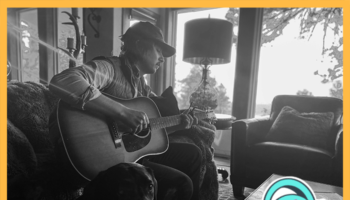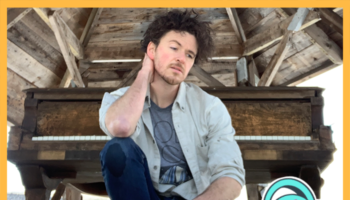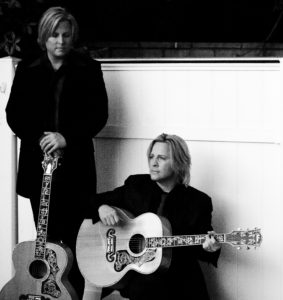 It’s that time again. Let’s sit back, relax and take a trip down memory lane with those individuals who inadvertently played a role in our pop culture past.
It’s that time again. Let’s sit back, relax and take a trip down memory lane with those individuals who inadvertently played a role in our pop culture past.
This time out we’re chatting with Gunnar Nelson, who, along with his brother Matthew, achieved massive success in 1990 with the single “(Can’t Live Without Your) Love And Affection.” But, the twin brothers’ musical roots go far beyond their own mainstream accomplishments. Gunnar and Matthew come from a long line of successful entertainers, a lineage that served as a classroom of osmosis to prepare them for the ups and downs of a career in music.
Currently on the road honoring their father’s musical legacy with the Ricky Nelson Remembered tour, we sat down with Gunnar Nelson to discuss the genre shift that brought about grunge, having the ability to rely on his brother regardless of the circumstances and staying on the good side of skinny tie bands.
TrunkSpace: Given your family tree, was there ever any doubt that music would become your path?
Nelson: Well, people ask me that question all of the time… if being related to who we were related to was a help or a hindrance. For me, what was great about it, I never got any pressure at all from my dad for following in his footsteps. Actually, having my father with an acoustic guitar in his hand, writing songs and putting the Stone Canyon Band together in the house when we were growing up was just really great social proof that making music for a living and doing it at the highest levels was possible. It was no more or less unlikely than say, if I came from a long line of plumbers and I wanted to go into the family business. It’s pretty nice to be able to learn from example when you’ve got a master in front of you and you’re able to observe and learn how everything works. And we were able to do that from a very early age.
TrunkSpace: And when people are being creative, most of the times they’re enjoying themselves, so seeing that process with your father may have been different than if your father was a plumber and came home talking about the various “tough” days he had in the business. And by this we mean, you probably saw your father in his element more so than other kids may see their fathers.
Nelson: Yeah. I mean, my grandma Harriet had a great expression. She said, “Some days you work. Some days you play.” I saw both. My dad would come home from a good day or a bad day. It’s like anything you do, you’re going to have that. You’re right. But I think that what actually helps it along is, that being a musician and choosing that, it’s not something that you do. It’s really who you are. It’s really a calling. It’s a plan for life that you actually undertake. In our dad’s case, we got to observe that… there was a point in his life when he actually could have gone down a path of being a fine film actor. He made “Rio Bravo” with John Wayne and of course he had been an actor his whole life being on “The Adventures of Ozzie and Harriet” and doing all of that. He could have gone down that road, which is arguably easier. That’s the road of higher pay and personal assistants and deli trays and set schedules and all of that. And instead, he definitely consciously chose to go down the path of being a rock ‘n’ roller. So, I think from that point on, you’d have to say that he was a guy that, just by his actions, determined that he was a musician who happened to be a good actor and not an actor who happened to be a good musician. Ultimately he wound up living and dying for rock ‘n’ roll.
In Matthew and my case, we started playing when we were six years old. We got our first instruments then. We got our first recording session on our 12th birthday. We started playing the LA clubs professionally that same year. Up until we got our record deal with Geffen, when we were 19, it’s basically all Matthew and I have ever known and all we’ve ever done.
TrunkSpace: Do you recall a moment in your life where music wasn’t a focus for an extended period of time?
Nelson: Well, not intentionally. (Laughter) Our first record came out in 1990 and it was really kind of the end of an era. I mean, shoot, we were the last confidence rock band to happen right before Nirvana was discovered and signed to our label that we were on. We were on Geffen and Geffen actually found Nirvana and started the whole grunge thing. That was a massive paradigm shift in the music industry and there were so many people from my genre of music that found themselves, through no fault of their own, really out of work. MTV wasn’t playing them, overnight. Radio stations weren’t supporting them, overnight. Unless you wore flannel, were into heroin and were from Seattle, they weren’t playing you for like 10 years.
TrunkSpace: And you sort of mentioned it, but it did seem to happen so quickly in terms of that shift.
Nelson: Well, and this is not sour grapes that I’m coming from, this is just years of research and conversation with people in the know. The fact is, that wasn’t organic. At all. That shift wasn’t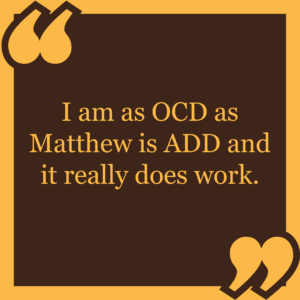 organic. It was actually engineered. What people don’t know is that there are about, at any given time, six to eight people that run the music business. These are the big, heavy hitter guys. They all know each other very well. They all do each other favors. They’re all billionaires. And the whole illusion of, “Hey, I’m gonna get my musical trip together, I’m gonna write a hit song, I’m gonna get a following from playing shows and I’m gonna get my record deal and have a big video and be a star…” that really, honestly, is nothing but an illusion. A lot of it is really engineered. You’ve got to look back at the death of disco, as an example. That was a time when the biggest acts were demanding lots of money to record. Back in those days, Donna Summer was demanding a million dollars to make a record and in 1970s dollars, man, that’s a lot. So, all of those power guys got together over dinner and they said, “You know what, this has just become completely excessive. The costs are ridiculous. What are we going to do about it?” Some guy came up with the bright idea in that meeting of a new little movement that was happening out of London called punk. They said, “Look, this is great. There’s a little mini scene that’s happening there and we can go there and we can get those guys to record for us and they’ll do it for a dime bag and a Happy Meal.” So if you notice, with the whole death of disco thing, which… look, disco was a BIG thing, and all of a sudden people are breaking records and burning records and “Disco Sucks” and all that stuff. And that one was engineered as well. The same thing happened with the whole grunge thing.
organic. It was actually engineered. What people don’t know is that there are about, at any given time, six to eight people that run the music business. These are the big, heavy hitter guys. They all know each other very well. They all do each other favors. They’re all billionaires. And the whole illusion of, “Hey, I’m gonna get my musical trip together, I’m gonna write a hit song, I’m gonna get a following from playing shows and I’m gonna get my record deal and have a big video and be a star…” that really, honestly, is nothing but an illusion. A lot of it is really engineered. You’ve got to look back at the death of disco, as an example. That was a time when the biggest acts were demanding lots of money to record. Back in those days, Donna Summer was demanding a million dollars to make a record and in 1970s dollars, man, that’s a lot. So, all of those power guys got together over dinner and they said, “You know what, this has just become completely excessive. The costs are ridiculous. What are we going to do about it?” Some guy came up with the bright idea in that meeting of a new little movement that was happening out of London called punk. They said, “Look, this is great. There’s a little mini scene that’s happening there and we can go there and we can get those guys to record for us and they’ll do it for a dime bag and a Happy Meal.” So if you notice, with the whole death of disco thing, which… look, disco was a BIG thing, and all of a sudden people are breaking records and burning records and “Disco Sucks” and all that stuff. And that one was engineered as well. The same thing happened with the whole grunge thing.
Look, there were a lot of bands that were pretty bad. Like in any movement, every label wants to have their Bon Jovi or something, so they go out and they sign that and there’s a lot of that stuff that’s really not very good. And aside from that creative statement, the finances involved… people were making quarter of a million dollar music videos and spending $750,000 making an album. And there were thousands of bands that were doing that and the industry finally shrugged and said, like the time with the death of disco, “We need a do over.” That is why, to a fan, it seemed like it was so fast. I mean, shoot, on a Monday they were playing “Livin’ on a Prayer.” The next day, they were playing “Smells Like Teen Spirit” and the Gap had Seattle fashion overnight.
TrunkSpace: And you could even see it in the VJs themselves. The look and aesthetic of MTV changed.
Nelson: It was absolutely instant. They basically got together, they talked to MTV, and they said, “Hey, guess what, this Tuesday, all that stuff you used to play you’re not playing anymore and this is the stuff that you’re playing.” And it became a movement and it generated tons of dollars. To a guy like me, it was really confusing because, shoot, I go out on tour for 13 months and I come back and all of my record company guys that I built relationships with over a period of years are all gone, replaced by 19 and 20-year-olds wearing flannel who come from Seattle and all of a sudden they’re record executives and what I do is not what they do. And as a matter of fact, I mean, I’ve become the punchline in jokes through no fault of my own, but it was no different I realized than what my father went through. He had his early career where he was doing the rockabilly thing with all of the other pioneers and then all of a sudden the singer/songwriter thing happened, the Beatles invaded America and everything changed. And the problem for my father was that, everything that represented that whole Eisenhower-era, Sun Records thing… those guys couldn’t get arrested. They couldn’t get any radio airplay. They couldn’t get any work if you didn’t write your own songs. And if you weren’t cool with the kids, you just didn’t get any support. It was no different for what happened to us when everything shifted. So, back to your question… a very long answer to a very short question… did I ever take any time off? My answer would be, not by choice. We were still making records and still fighting the fight and writing the songs and playing out, but it just wasn’t to the success and to the reception that we had when we first came out.
TrunkSpace: So before that turnover happened and “(Can’t Live Without Your) Love And Affection” hit #1, was that creative success a double-edged sword, and by that we mean, did success bring a tidal wave of people and opinions trying to influence who you guys were and what your music should be?
Nelson: Well, success has many parents and failure is an orphan. When you aren’t anything yet, no one cares. When you actually hit and you hit at the level that we did when we did, oh my gosh, it’s amazing. Everybody wants to be involved in your trip and everybody wants their opinion. There’s an art to making those people with the biggest egos in the world feel like it’s their idea when in fact it’s really not. Remember, we were on Geffen Records and we were working with the people that we were working with. The record staff that we were working with were in the habit of sending Aerosmith back into the studio to rerecord entire albums just because they felt like it. So, it was difficult. It really was. Nothing could have prepared us for that kind of success that quickly. I mean, it was ridiculous. It was like New Kids on the Block at its peak, kind of girls in the audience of 20,000 shrieking like a jet engine kind of success. When we’ve spent our young lives playing five nights a week at the LA clubs with the skinny tie bands and stuff and then you take a couple of years off to learn how to write better songs and you come up with your trip and you make it happen, shoot, man, all I know is… I went to the Sherman Oaks Galleria to buy some socks because I had a trip to New York to fill in for Daisy Fuentes on “Dial MTV” and I came back a week later. The only thing that had changed was that Matthew and I had been on MTV as VJs for four days and we closed down that same mall because so many chicks showed up. So the only thing that was different was TV exposure. That was it. We were still the same guys.
TrunkSpace: And that’s the thing, you may change in the perception of others, but you’re still wearing the same socks you bought the week before. You don’t change.
Nelson: Yeah. And I still have the socks! (Laughter)
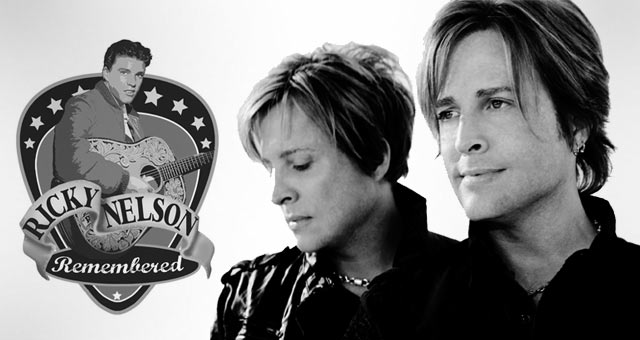
TrunkSpace: So, when that happens… when the craziness takes control and swallows you up… how do you maintain yourself in all of that?
Nelson: Well, what keeps you grounded in our situation is that it is something that our family has always done. I mean, this wasn’t new to anybody in the family. Certainly, I wasn’t really truly prepared for it, but the thing that kept my feet on the ground was the fact that I’m just following in my family’s footsteps. It’s what my dad did and it’s what my grandparents did and all of that. As far as the big head side of things is concerned, I never really got a swelled head from the success because I knew it was about as real as the non success and the moments when you’re in-between hits. It’s all about fighting the good fight and doing your best work and some things will hit and some things won’t. It takes a lot of alignment to happen in order for any hit to really pop. No matter what you’re doing in life… no matter what you’re pursuit is… I love the expression that the definition of luck is when preparation meets opportunity. You can actually increase either one if you’re really determined. I mean, you can actually be far more prepared, you can get your chops up as a player and as a writer by playing shows and all that stuff, and then in just in networking and putting yourself out there you can get the possibilities that you’ll actually have an opportunity that’s meaningful. You can actually make yourself luckier is my point. And Matt and I spent, pretty much our entire lives, trying to make ourselves lucky so when that first thing happened, it was a big thing. We had no idea that it was going to be as big as it was quickly, and at the same time, we had no idea that we weren’t going to have more than that first record before Nirvana came in and changed the game.
TrunkSpace: Having each other through all of those ups and downs must have been helpful?
Nelson: The expression around my house was always, “Well, don’t worry about the boys… they’ve got each other.” It was really true. I mean, when we were kids we thought that was kind of a cop out, but now in hindsight looking back, we realize that God brought us in as twins because with the path we’ve chosen… man, I don’t know any individual by themselves who could have actually handled the highs and lows that we have had to deal with in our lives. I can’t overstate at all how important it has been to have my twin at my side through this entire journey. It’s really an amazing thing. And the way we work together, that whole twin speak thing and the unspoken knowing when the other one is needed by the first twin thing, there’s really something to it. It really has helped keep us sane. I suppose it’s the reason why we didn’t wind up as a statistic or a Hollywood casualty like so many other people that came from famous families before us. We never went down the drug path. We never went down the alcohol path. We never did any of that stuff. Our passion has really kind of been music, but, I really credit being an identical twin and having my partner with me all the time through the highs and lows of getting record deals, losing record deals, going on tour, losing tours… all that stuff… I wouldn’t have been able to handle it without my twin.
TrunkSpace: It sounds like having each other became the rock of stability in both of your lives.
Nelson: It really is. I wouldn’t want to think about what it would be like without him. When I’m on stage, it’s really comforting to me after all these years… 30 years into it… to be able to look to my left and my twin is there and he’s playing bass and doing his thing and singing and I know he’s got my back no matter what. Another expression is that, if you’re in a band, that band WILL eventually break up. It’s not that way with what Matthew and I do because we came into this world together. Literally, we split from the same cell. We’ll always be brothers. And fortunately in our case, it’s not like the Everlys where it just got the point where those guys wanted separate buses and wouldn’t speak to each other for decades. I mean, I think Matt’s cool and I hallucinate that he thinks I’m cool too and get along great. It might be boring, but it really does work for us.
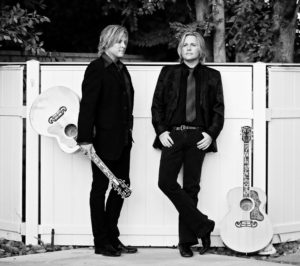 TrunkSpace: With kids, often the younger ones look up to the older ones. How does it work with twins? Who looks up to who?
TrunkSpace: With kids, often the younger ones look up to the older ones. How does it work with twins? Who looks up to who?
Nelson: Well, it depends on what we’re working on. We both have really cool complimentary strengths. Matthew is definitely far more attracted to the live element and going out and doing shows. Matt, to a very large degree, the tedium involved in being in the recording studio would be like going to the dentist for him. He likes to come in and play his parts or sing his vocal and get the hell out as quickly as he can. On the other hand, I absolutely love the recording studio. I am as OCD as Matthew is ADD and it really does work. So, I’m going to be the guy who’s gonna be in the studio for weeks at at time up until 4 or 5 in the morning working on a kick drum sound. I mean, I love that part of it. So, fortunately, since we’re both working on music together, it actually really does compliment the relationship and it makes some really good art, I think.
TrunkSpace: So what was it for you guys that first brought you into music? Was it the instruments? Was the writing the draw? Was it the atmosphere? What was it that peaked your interest?
Nelson: That’s a great question. My first conscious memory was actually sitting on an apple crate at the side of the stage at Knott’s Berry Farm in Buena Park, California and watching my father perform. I made this connection that… this is awesome, it’s loud, and it’s energetic and I was totally enamored by the drummer’s giant drum set. It was the 70s after all. Talk about overkill, man… it was a double bass drum kit for a country rock band, but it was totally cool. And I remember making this distinction that, man, he is out there on stage and he’s enjoying himself and the audience is going nuts and, “I WANT TO DO THAT!” And I talked to my mom about that moment and she goes, “Oh my god. I remembered that and you were TWO. You were two years old.” So, my first memory that I can really recall is that and it was ALL of it. It was all of that. I just knew that that was what I wanted to do.
Now, when we started out, like everybody else who starts out… even though we were six… we were playing along to records. I got a drum set and Matt got a bass and our parents put us in the hay loft above the barn, far away from the house so we could make as much racket as we wanted to. We played along to our KISS records and did what other people do when they’re starting out, usually a little later in life than we were. Our dad would go on the road and he’d come back and sure enough we hadn’t quit. We were still doing it and we kept on doing that and kept on doing that and finally we actually got to be pretty competent at doing what we were doing and by the time we were 11 or 12, we were playing in all of the school productions at our sister’s high school. She was many years older and we were playing in the senior productions and stuff by the time we were 11, which was awkward, but kind of cool. And then we started playing the LA clubs right around the time the scene was really cool. People talk about the whole Sunset Strip thing and the hair band thing, but Matt and I, believe it or not, even though we were the world champion hair farmers of all time, we actually were never a part of that whole Sunset Strip, Gazzarri’s kind of scene. We actually, believe it or not, started out 10 years before then when the scene was a little further south. It was pretty much Wilshire Boulevard and it was at like the Troubadour, Madame Wong’s West and the China Club. There was a different scene when the skinny tie bands were ruling the world. From the time we were 12, we were sharing a stage with bands like The Knack and The Go-Go’s and The Plimsouls and The Cramps and everything with a “The” in front of it, but it was really cool because, from a distance, you would think, “Oh, those are really cute pop bands and isn’t that nice.” But the thing is, it was far more dangerous, believe it or not, to play in that circuit than it ever was doing that whole hair band thing because, from what I heard from my friends years later, the worst that was going to happen if you were in a rival band on the Sunset Strip was that someone would steal your girlfriend. But when we were doing it, with all the skinny tie bands singing love songs, what people would leave out is that, man, it was unbelievably competitive and those bands, funny enough, they’d sing these sappy love songs, but all of them were addicted to heroin and all of them would knife you with a switch blade if you went five minutes over on your set. They were sabotaging you all of the time and that was the scene that Matthew and I grew up in.


